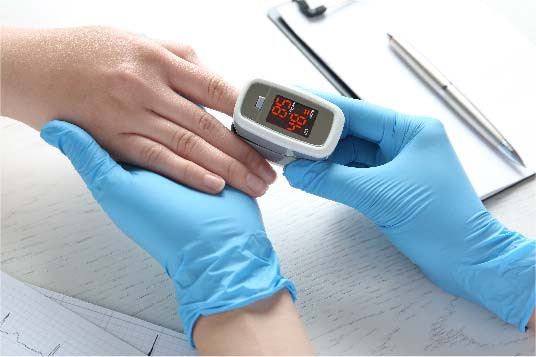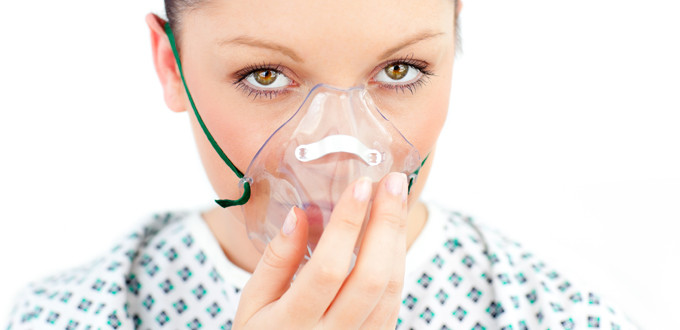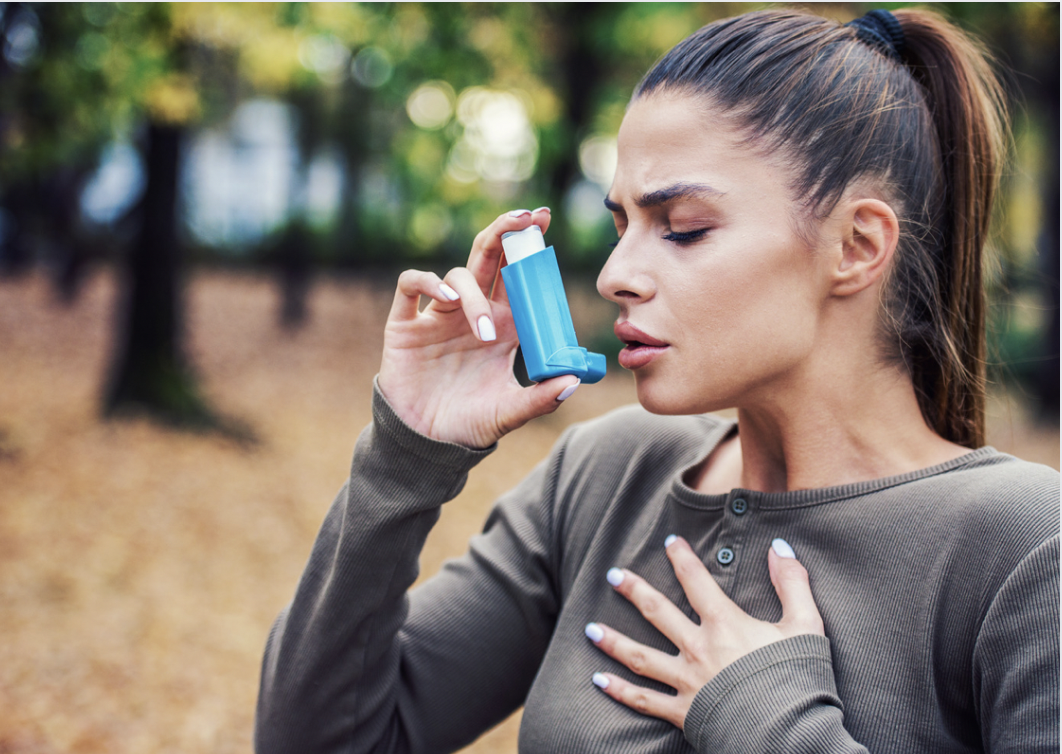Definition
Pulmonary edema is a condition characterized by fluid accumulation in the lungs. This fluid accumulates in the lung's air sacs (alveoli) and causes difficulty breathing. When you breathe, your lungs should be filled with air. Because the air sacs in the lungs are filled with fluid, the amount of oxygen in the air that passes from the lungs to the blood is reduced. This condition, as well as the underlying disease that causes pulmonary edema, requires medical attention.
Causes
The causes of pulmonary edema are divided into two categories: pulmonary edema caused by heart disease and pulmonary edema caused by other factors. However, in some cases, both heart disease and other conditions can cause pulmonary edema.
Cardiogenic pulmonary edema
Cardiogenic pulmonary edema is caused by heart disorders, most commonly due to heart failure. When the left ventricle fails to pump blood from the pulmonary veins to the rest of the body, pressure accumulates in the lungs' small blood vessels, resulting in fluid leakage. Fluid leakage can accumulate in the lung air sacs, resulting in shortness of breath.
Some medical conditions that can cause heart failure and lead to pulmonary edema include:
- Coronary heart disease, is a blockage of fatty plaque in the coronary blood vessels that supply the heart muscle
- Heart muscle damage (cardiomyopathy), this condition causes the blood-pumping function of the heart to not run properly
- Heart valve disease, the narrowing or leakage of the valve will make the heart work extra hard in pumping blood
- Uncontrolled high blood pressure (hypertension) can cause heart enlargement
- Inflammation of the heart muscle (myocarditis)
- Congenital heart disease
- Heart rhythm disturbances (arrhythmia)
- Kidney disease can also cause pulmonary edema
- Chronic medical conditions, such as thyroid disease, iron or protein buildup
Non-Cardiogenic pulmonary edema
In this category, pulmonary edema is caused by medical conditions unrelated to the heart. Causes of this condition include:
- Acute respiratory distress syndrome occurs when the lungs suddenly fill with fluid and inflammatory cells, causing the lungs to shrink and stiffen, making breathing difficult
- Drug side effects or drug overdose, such as heroin and cocaine
- Blockage of pulmonary blood vessels due to blood clots (pulmonary embolism)
- Inhalation of toxins or smoke with harmful chemicals, which can irritate the small airways and lung air sacs
- High altitudes such as mountains, usually above 2400 meters
- Near drowning and accidental ingestion of water into the lungs
- Neurological disorders and pulmonary edema may occur after head injury, seizures, or brain surgery
- Viral infections such as hantavirus and dengue viruses
Risk factor
Factors that can increase the risk of pulmonary edema include:
- Heart failure and other heart conditions that increase pressure in the heart:
- Heart rhythm abnormalities
- Alcohol consumption
- Congenital heart disease
- Coronary heart disease
- Diabetes
- Heart valve disease
- High blood pressure
- Obstructive sleep apnea (OSA)
- Illicit drug use
- Working or being in an environment exposed to toxic fumes and compounds
- Viral infection
- Traveling to high altitudes above 2,400 meters without acclimatizing first
Symptoms
Signs and symptoms of pulmonary edema can appear suddenly or slowly, here are the symptoms of pulmonary edema based on the type of disease:
Symptoms of acute (sudden) pulmonary edema
- Difficulty breathing or severe shortness of breath that worsens with activity or when lying down
- A feeling of suffocation or drowning that worsens when lying down
- Coughing up foamy sputum may be accompanied by the color of the blood
- Wheezing or gurgling sounds when breathing
- Gasping
- Cold and clammy skin
- Anxiety, restlessness, and worries
- Bluish lips
- Rapid and irregular heartbeat
Symptoms of chronic (long-term) pulmonary edema
- Difficulty breathing during exercise or while lying on a flatbed
- Waking up at night due to coughing or a feeling of breathlessness that may improve with sitting up
- Wheezing or "gurgling" sounds when breathing
- Rapid weight gain
- Swelling in both legs
- Fatigue
- A new cough or an old cough that worsens
Symptoms of pulmonary edema at high altitude
- Headaches may be the first symptom to appear
- Shortness of breath during exercise, which may progress to shortness of breath at rest
- Reduced ability to exercise than usual
- Dry cough that will progress to coughing up frothy, pink-colored phlegm
- Very fast heartbeat
- Fatigue
- Chest pain
- Low fever
Diagnosis
Doctors can diagnose pulmonary edema based on the signs and symptoms, a physical examination, and supporting tests such as an ECG and chest X-ray. Once your condition has stabilized, your doctor will ask about your medical history to rule out any heart or lung disease that could be causing the pulmonary edema.
Some supporting examinations that can be done to diagnose pulmonary edema or determine the cause of fluid buildup in the lungs are:
- Chest X-ray
- CT scan of the chest
- Oximeter to check the body's oxygen saturation
- Blood gas examination
- Cardiac biomarker b-type natriuretic peptide (BNP) test
- Other blood tests such as complete blood, metabolic, kidney function, or thyroid function
- Electrocardiogram (ECG)
- Echocardiogram
- Cardiac catheterization
- Lung ultrasound
Management
The treatment for pulmonary edema varies depending on the cause, but it typically includes the administration of oxygen and medications to relieve symptoms. Sudden-onset pulmonary edema is a medical emergency that requires immediate attention. The first line of treatment for acute pulmonary edema is the administration of oxygen, which will relieve some of the symptoms. The doctor will carefully monitor the oxygen levels. Sometimes, an assistive device such as a ventilator may be needed to help with breathing.
Depending on the severity of the symptoms and the cause of the pulmonary edema, you may be prescribed the following medications:
- Medications to remove excessive fluid in the lungs
- Blood pressure medication
- Medications to increase heart pump
Complications
Complications vary depending on the underlying cause. In general, pulmonary edema causes an increase in pulmonary vascular pressure (pulmonary hypertension). If this occurs, the heart will weaken, resulting in heart failure. Acute pulmonary edema that is not treated quickly can lead to death.
This breathing disorder can develop into ARDS (Acute Respiratory Distress Syndrome), a potentially fatal severe respiratory syndrome. This syndrome can result in severe oxygen depletion in the blood, respiratory failure, and even ventilator support.
Fluid buildup can also extend to the pleura, the membrane surrounding the lungs. Another complication of pulmonary edema is liver swelling.
Prevention
Pulmonary edema can be avoided by treating existing heart or lung conditions and living a healthy lifestyle. For example, controlling cholesterol and blood pressure can reduce the risk of heart disease. Some tips for maintaining a healthy heart are:
- Maintaining a healthy diet rich in fruits and vegetables and low in fat
- Maintain a balanced body weight
- Exercise regularly
- Avoid smoking
- Limit salt and alcohol consumption
- Manage stress
When to see a doctor?
Acute pulmonary edema is a life-threatening condition. If you or someone close to you, especially if they have heart or lung disease, develops severe shortness of breath unexpectedly, seek immediate medical attention. Do not drive yourself to the hospital because it is potentially dangerous.
Looking for more information about other diseases? Click here!
- dr Hanifa Rahma
Pulmonary edema - Diagnosis and treatment - Mayo Clinic. Mayoclinic.org. (2022). Retrieved 30 March 2022, from https://www.mayoclinic.org/diseases-conditions/pulmonary-edema/diagnosis-treatment/drc-20377014.
Pulmonary Edema. WebMD. (2022). Retrieved 30 March 2022, from https://www.webmd.com/lung/the-facts-about-pulmonary-edema.
Pulmonary Edema: Symptoms, Causes, and Treatment. Healthline. (2022). Retrieved 30 March 2022, from https://www.healthline.com/health/pulmonary-edema.
Malek, R., Soufi, S. (2021). Pulmonary Edema. Retrieved 07 April 2022, from https://www.ncbi.nlm.nih.gov/books/NBK557611/












